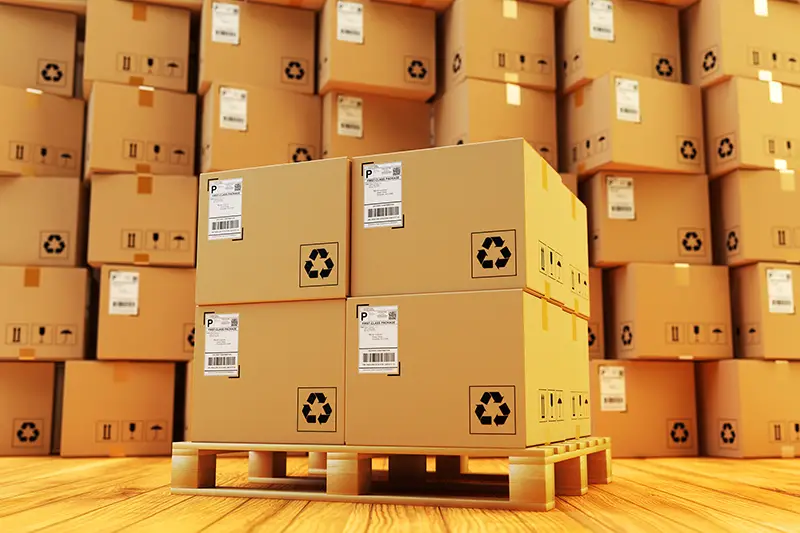Click here to get this post in PDF
By Thomas Pinnington, Technical Sales Manager at Newcode Partnership
Small businesses whose activities include producing and distributing physical goods and products are currently facing significant pressure to improve sustainability across their supply chain. Moreover, with environmental concerns rising across the globe, such matters are no longer seen as purely a corporate social responsibility issue. Instead, sustainability is now being treated as a priority by business leaders, regulators and customers alike.
With international regulators increasing their focus on environmental standards and consumers becoming more and more aware of issues of sustainability, businesses of all sizes need to make the necessary adjustments to how they operate to ensure that they take these responsibilities seriously.
Here, we will explore the potential financial benefits and reduced environmental impact of embracing a more sustainable approach to packaging production and how improved marking and coding solutions can play a key role in delivering these benefits.
The case for improved packaging sustainability
A 2021 report from Trivium Packaging has shown that 67% of consumers consider it important that the products they buy come in recyclable packaging, and 54% consider this when purchasing decisions. Moreover, 70% are willing to pay more for sustainable packaging, with younger consumers particularly willing to do so.
In response to this, forward-thinking businesses are embracing new technological solutions to make their packaging more environmentally friendly, including:
- Using packaging that is recyclable or reusable wherever possible
- Ensuring that the materials are biodegradable and compostable when disposed of
- Creating packaging that can be easily recycled through standard channels, avoiding complex multi-material packaging
- Using lighter, more flexible materials in packaging to make them easier and less energy-intensive to produce and transport
- Incorporating more recycled materials into packaging production
- Eliminating unnecessary packaging wherever possible
These changes are helping businesses modernise their packaging production in line with consumer expectations and regulatory requirements. Not only does this help to reduce costs and improve efficiency, but it also marks the company out for its environmental stewardship – all of which can be important, impactful differentiators for small businesses that are looking to establish themselves in the marketplace.
The role of marking and coding in packaging sustainability
Although many companies are investing in better production technology and equipment to achieve these sustainability goals, many overlook the potentially significant benefits that advanced solutions for marking, coding and labelling can play in this process.
After all, every business that creates packaging and labelling for its products relies on printers and marking technology to routinely encode vital product data and information, such as barcodes, batch numbers, production details, sell-by dates or tracking ID numbers. This process is as essential as it is commonplace, so it makes sense to invest in this area as a means of unlocking long-lasting sustainability performance benefits across the entire supply chain.
Indeed, many businesses are now realising this, leading to a growing demand for advanced coding systems that are optimised to deliver better sustainability. This can result in higher upfront costs, but businesses are showing a willingness to pay this due to their understanding of the longer-term benefits and return on investment.
These advantages include:
Eco-friendly inks
Many older inks used in product marking and coding are created using mineral oils and methylethylketone (MEK). There are various harmful environmental and greenhouse gas impacts associated with the production and evaporation of mineral and MEK-based inks, as well as potential health issues arising when this type of ink is used in food packaging.
The European Union recently issued an official recommendation that mineral oil-based inks should be removed from packaging production, and many modern systems are now switching over to alternative eco-friendly options such as water, alcohol or vegetable oil-based inks, delivering the same printing results while avoiding the environmental risks.
Printing directly onto any type of packaging
One of the key capabilities of modern marking and coding equipment is printing directly on to materials and packaging types that would typically present a challenge for printers. Contact-free printing allows manufacturers to print barcodes and essential data onto challenging substrates such as plastic and metal with no difficulty, or curved and irregularly-shaped items such as bottles.
This eliminates the need for physical labels for these products, reducing the amount of unnecessary packaging created during the process. It also ensures that companies making the switch to thinner, lighter and more eco-friendly packaging can still print onto these materials, as modern systems are also optimised to print on fragile surfaces.
Economical performance and automation benefits
Investing in better marking technology delivers numerous performance refinements and improvements to increase overall efficiency across the system’s lifetime. In addition, this technology is highly automated, allowing your production line to run reliably without manual errors and with no need for regular stoppages or reactive maintenance.
Moreover, these modern systems incorporate longer-lasting print heads requiring less regular replacement, reduced energy usage, and economical cartridge designs that use every drop of ink to eliminate unnecessary waste. Creating a smoother and more efficient packaging production process unlocks benefits in terms of energy savings, carbon footprint and lower costs.
These investments are essential, as demand for more sustainable packaging will only increase in the next few years. By taking all of the available opportunities to make sustainable process improvements throughout your supply chain, small businesses can save money, enhance their green credentials and better meet the evolving expectations of customers and regulators alike.
Thomas Pinnington is the Technical Sales Manager at Newcode Partnership, a trusted supplier of marking and coding solutions for industrial printing. Thomas provides support and expertise in selecting the right coding platforms that are able to meet the needs of businesses spanning multiple industries.
You may also like: Reasons to Consider Thermoplastics for Product Packaging
Image source: Shutterstock.com

